Introducing the 2021 ExploraVision National Winners
The eight national winning teams of the 29th annual Toshiba/NSTA ExploraVision competition shared innovative proposals to help overcome some of the world’s greatest challenges, from healthcare to sustainability efforts to energy efficiency.
During an unprecedented school year, these students and their coaches showed dedication and creativity in developing new solutions and technologies to improve the world around them. We congratulate the national winning teams and are excited to celebrate their accomplishments during our virtual ExploraVision awards ceremony on Friday, June 4th!
Learn more about the 2021 ExploraVision national winners below.
First-Place Winners
Grades K-3: Toothbrush of the Future, Lockwood Elementary – Bothell, WA
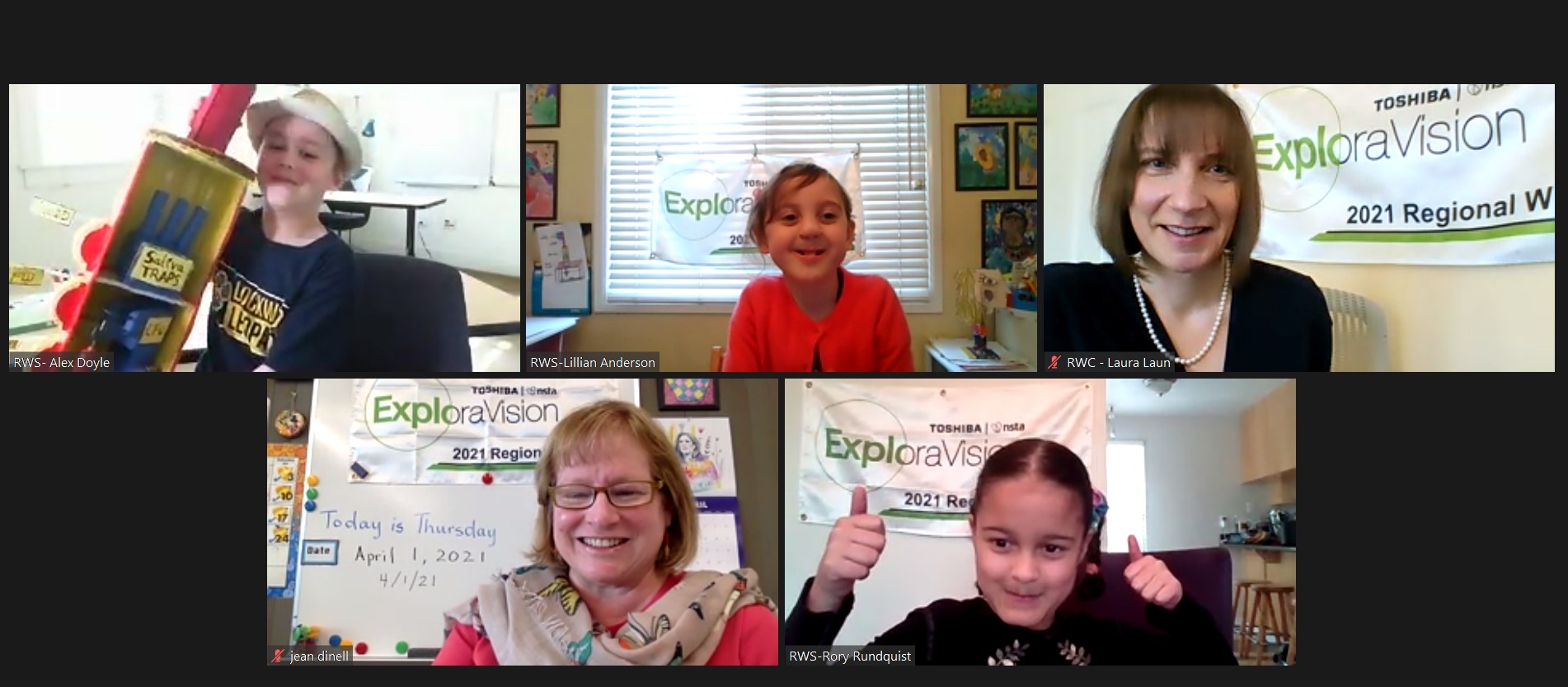
What if a common household item that people use daily could detect viruses, cavities and other health issues? This team of second graders from Lockwood Elementary had this same thought when they developed Toothbrush of the Future, a smart toothbrush equipped with a camera, sensors and artificial intelligence to carry out a wide range of health tasks.
Grades 4-6: Coagulation Filtration System, Open Window School – Bellevue, WA
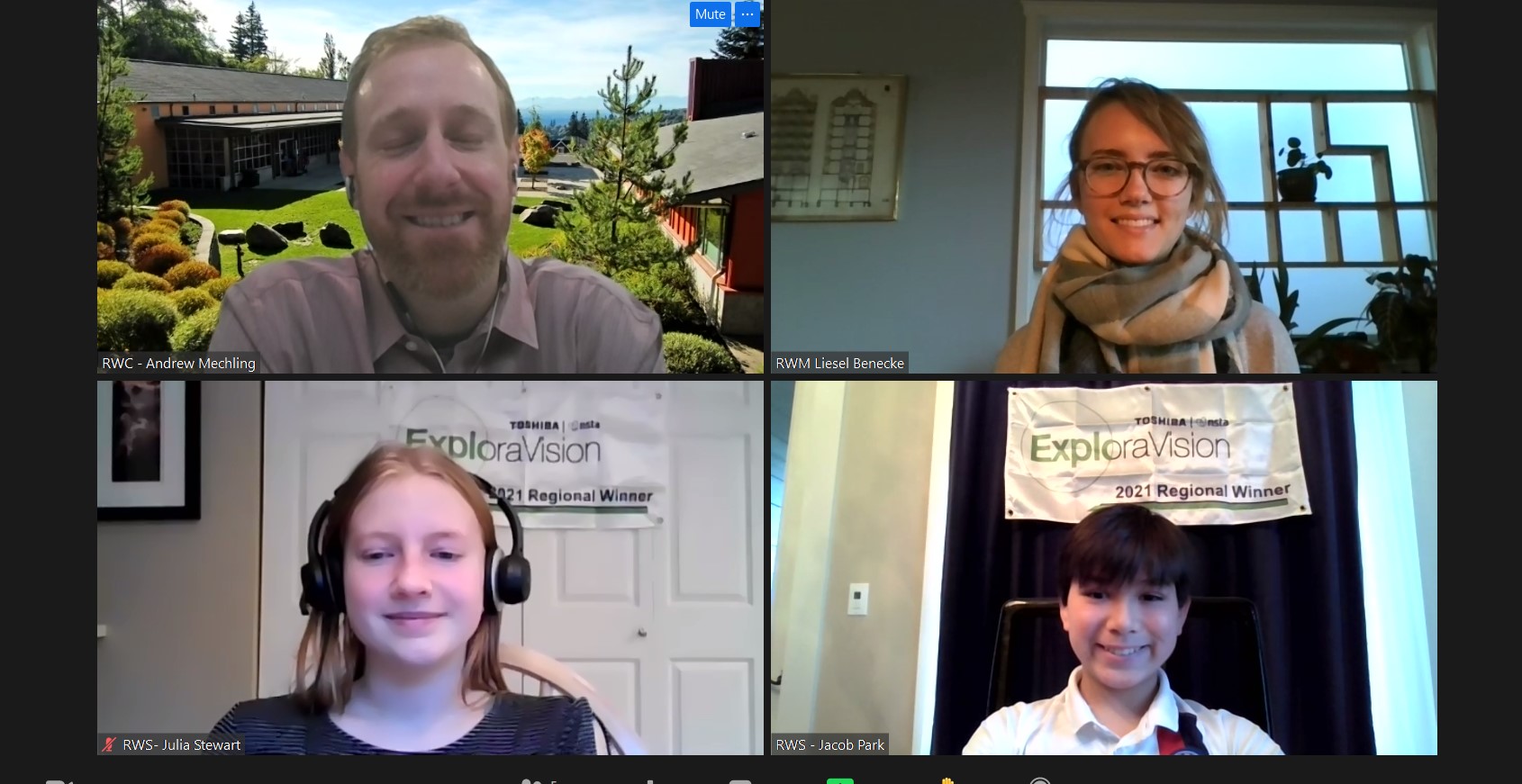
Did you know that approximately 25% of the world’s population lacks adequate sanitation in their water supply? These two students from Open Window School developed Coagulation Filtration System to provide safe, efficient, and sustainable drinking water for people everywhere. The solar-powered water filtration technology removes harmful microplastics from drinking water and can be quickly employed in settings ranging from disaster areas to our own homes.
Grades 7-9: Mag-Launcher, Marlboro Memorial Middle School – Morganville, NJ
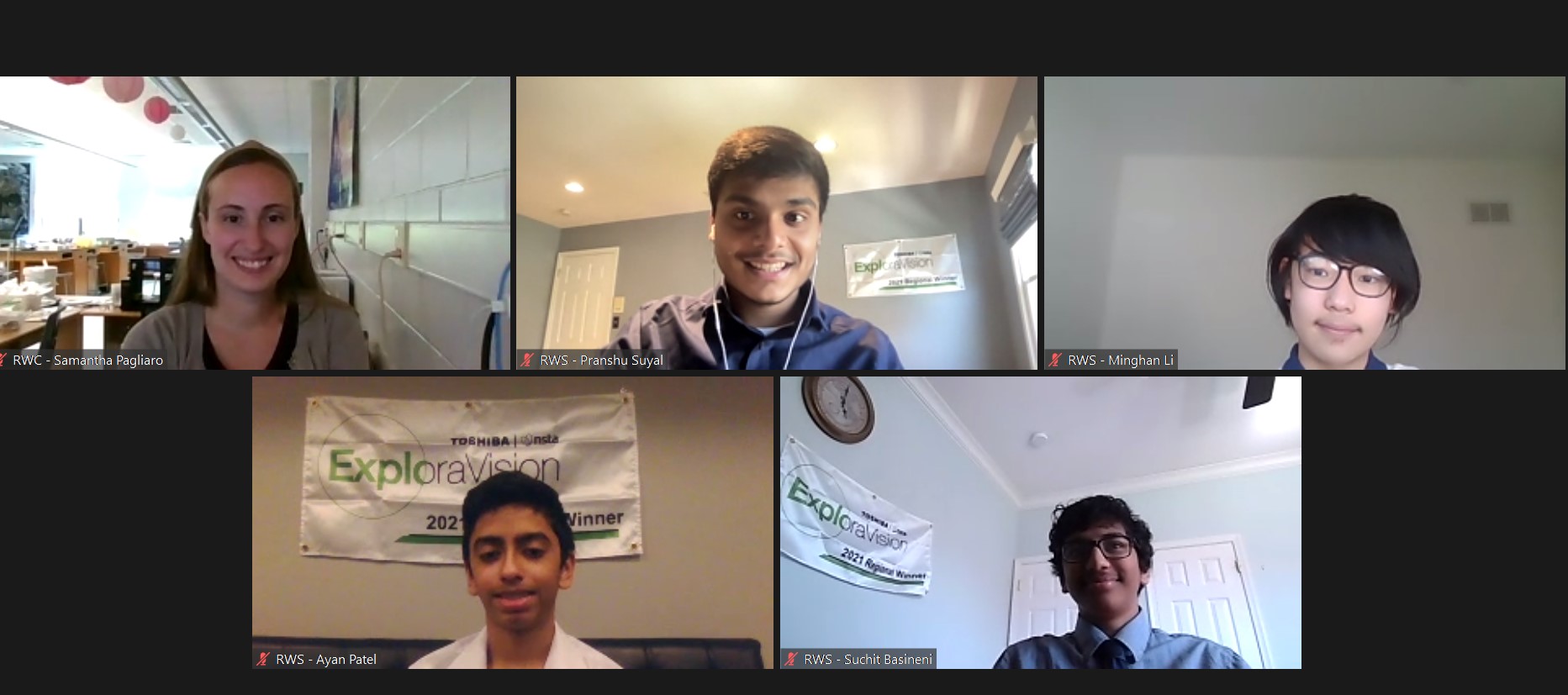
As technological innovations make space exploration more common, this team of eighth graders from Marlboro Memorial Middle School sought to make rocket launches more eco-friendly by reducing the emission of greenhouse gases. Mag-Launcher is an innovative, reusable electromagnetic repulsion system designed to advance space exploration while causing minimal harm to the environment.
Grades 10-12: Shiitake Diapers, William Lyon Mackenzie C.I. – Toronto, ON
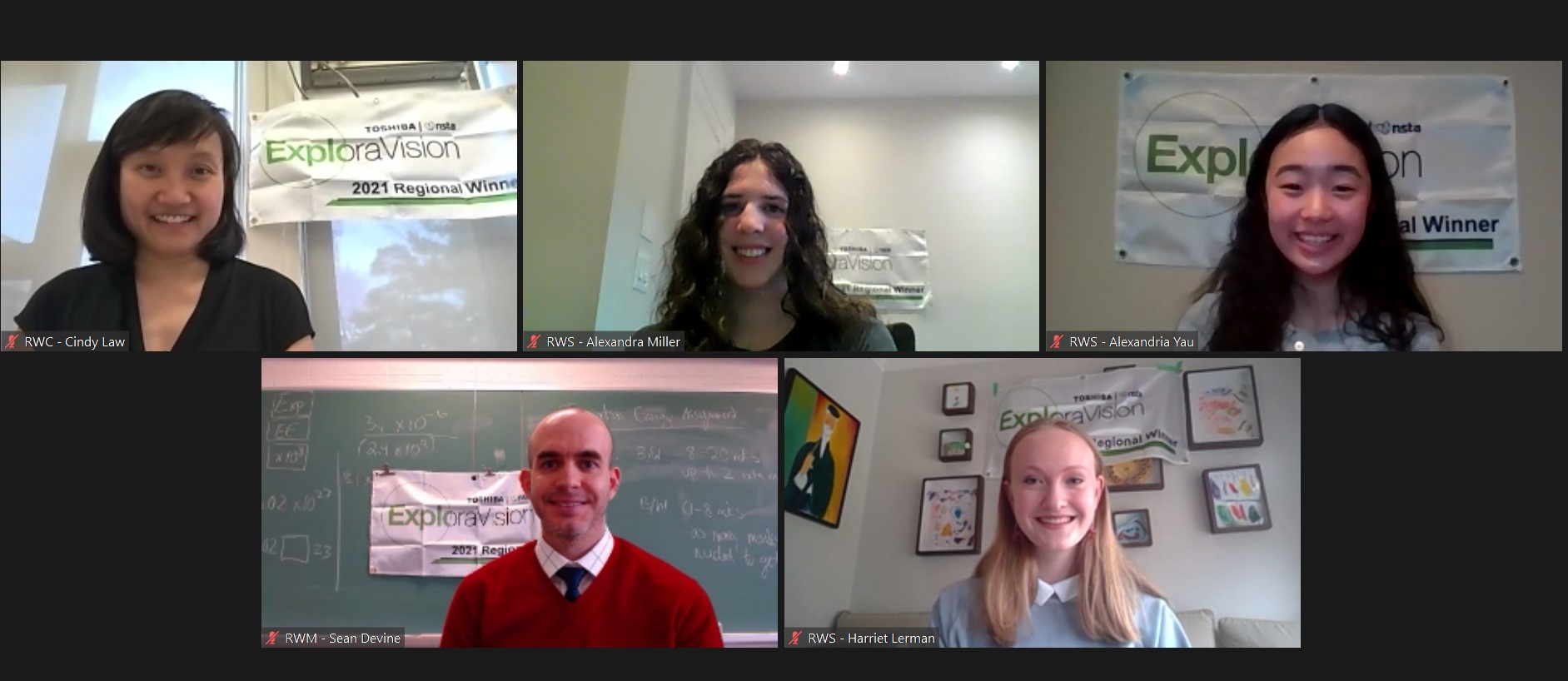
How do you tackle carbon emissions and plastic waste in landfills? With Shiitake Diapers. This team from William Lyon Mackenzie C.I. proposed using carbon-capturing mycelium (the vegetative part of a fungus) as a way to fuel the creation of more eco-friendly diapers. The diapers would not only decompose faster and more easily, but also emit less methane in the process.
Second-Place Winners
Grades K-3: Lung Transplant Using Stem Cells, Hawthorn Elementary South – Vernon Hills, IL
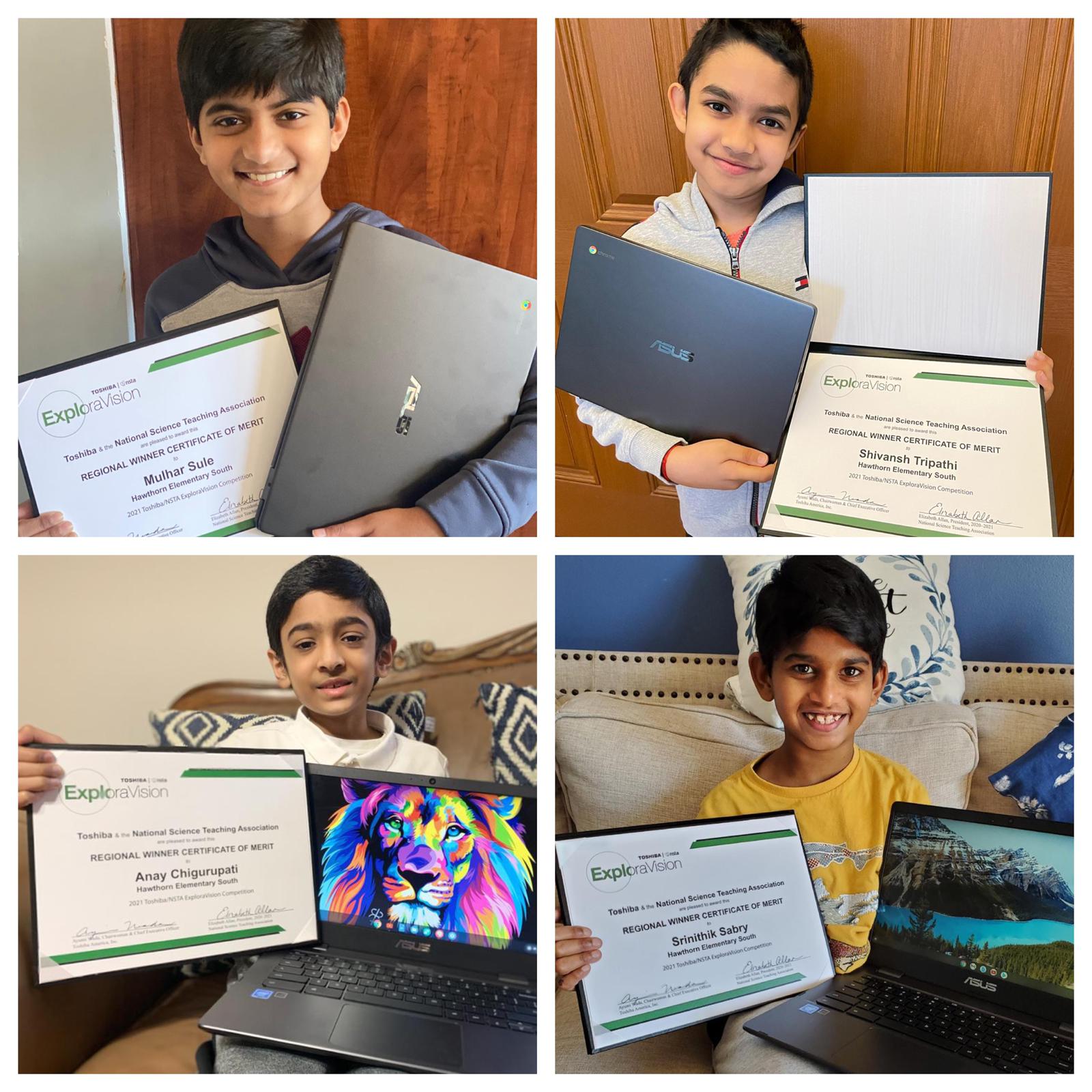
Realizing that the COVID-19 pandemic may lead to an increase in lung diseases globally, this team of third graders from Hawthorn Elementary South developed a method to grow healthy human lungs using a patient’s own bone marrow stem cells. The stem cells would be grown into healthy “mini lungs” and a supporting biodegradable artificial micro-pump could be added during transplant to support the patient’s respiration until their new lungs can function independently.
Grades 4-6: The BioBot, A.D. Henderson University School – Boca Raton, FL
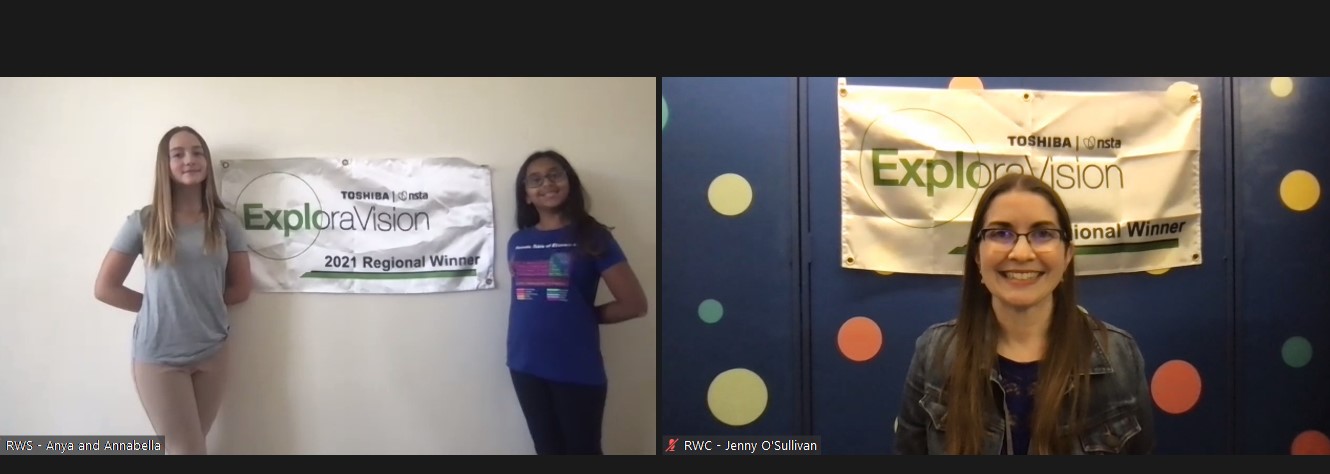
Climate change poses a major threat to our global water supply and natural ecosystem. This team from A.D. Henderson University School developed The BioBot to rapidly break down plastic collected from rivers and oceans, converting it into micronutrients for the ecosystem. The technology would be contained in an “interceptor,” which uses artificial intelligence, drones, solar panels and supercomputers to manage the harmful enzymes and their containment.
Grades 7-9: Degrade-a-Pad, University of Illinois Laboratory High School – Urbana, IL
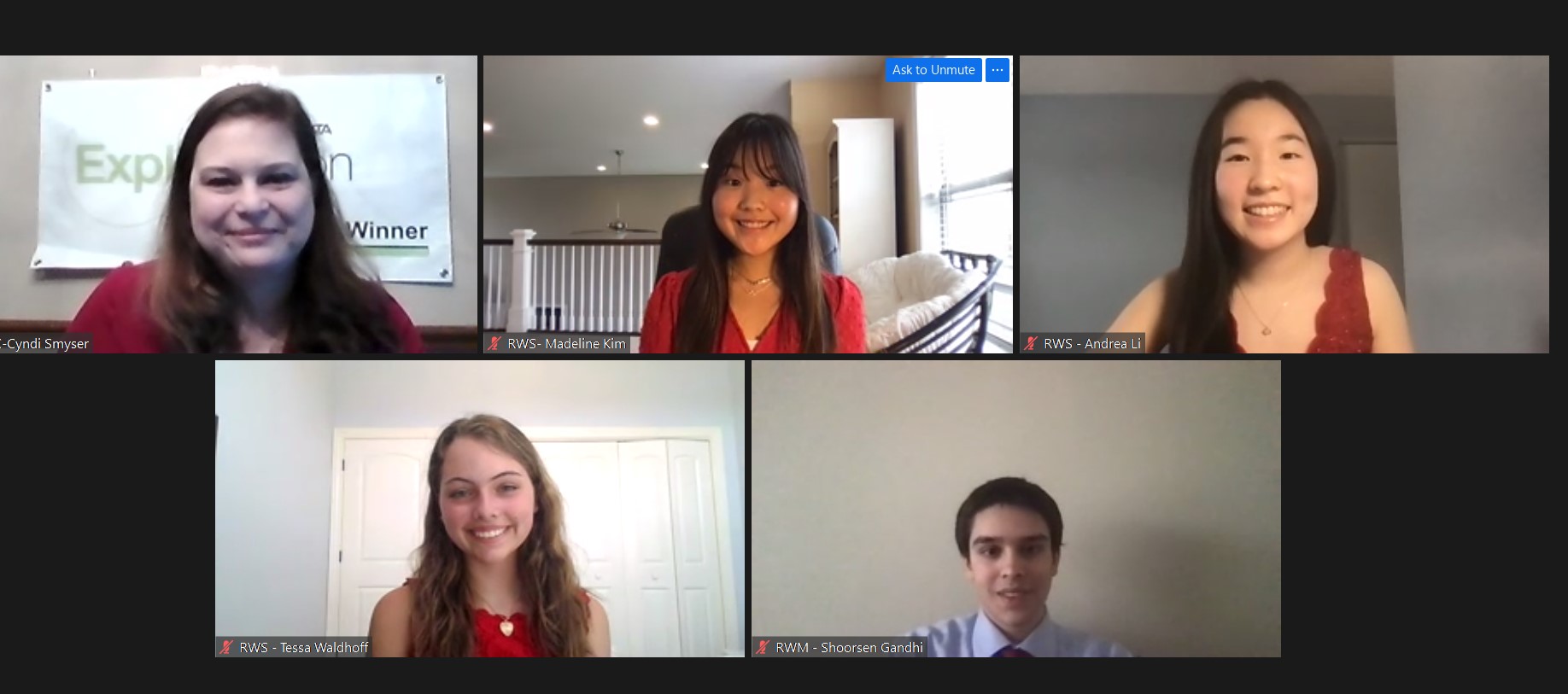
In North America alone, around 12 billion menstrual pads are deposited into landfills every year. This team of ninth graders from University of Illinois Laboratory High School developed Degrade-a-Pad to quickly degrade a sanitary napkin into lactic acid and glucose by using enzymes in a toilet tank compartment, allowing the pad to be safely flushed into the sewer system to reduce plastic waste in landfills.
Grades 10-12: An AI-Based System to Neutralize Pesticides and Sustain Honeybee Populations, Bob Jones High School – Madison, AL
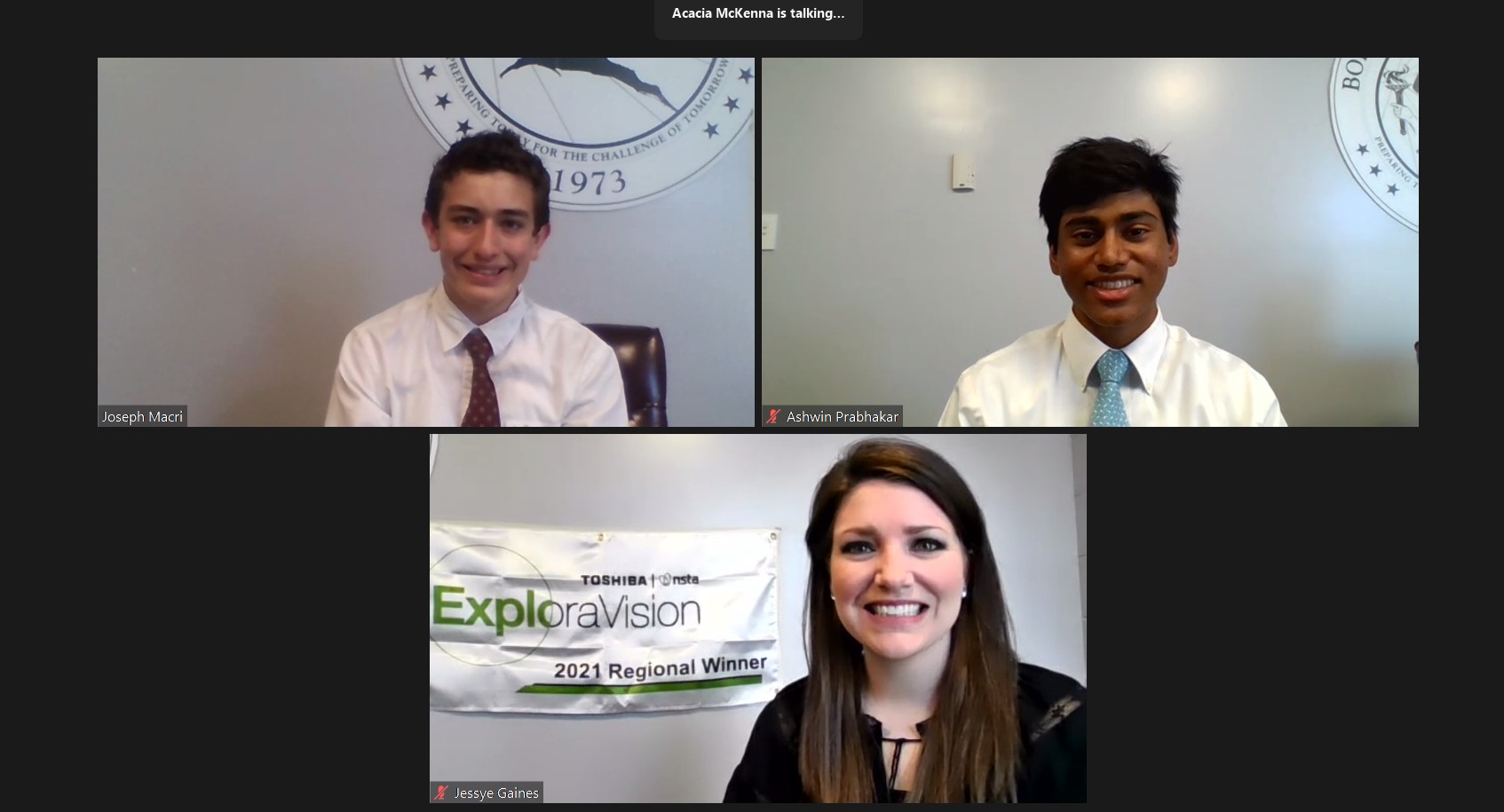
When this team from Bob Jones High School discovered that honeybee populations are declining due to widespread use of neonicotinoid pesticides, they developed a novel targeting system to mitigate the pesticide’s effects. Their solution uses machine learning and artificial intelligence to select the precise location for pesticide neutralization and selectively dispense an optimized concentration of formulas to neutralize the pesticides and sustain the honeybee populations.